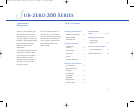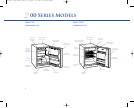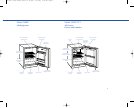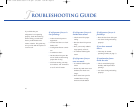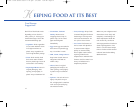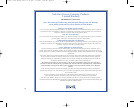
12
Shelf life of fresh foods varies
depending on how fresh it is
when you buy it. To keep your
food fresher longer, follow the
recommended storage tips.
• Vegetables: Wash vegetables
in cool water and drain. Store
in air-tight containers or
plastic wrap. Vegetables do
well in high-humidity storage.
• Fruits: Wash and dry fresh
fruits. Store more aromatic
fruits in plastic bags. Fruits do
well stored in low humidity.
• Prepackaged Meats: Store in
original packaging. After
opening, rewrap tightly in
plastic wrap or aluminum foil.
• Fresh Meats, Fish and
Poultry: Remove store
wrappings, then rewrap in
plastic wrap, foil or waxed
paper and refrigerate
immediately.
• Eggs: Store eggs unwashed in
their carton or a portable egg
tray. Use within 2 weeks.
• Milk, Cream, Cottage Cheese:
Keep carton closed. Store on
refrigerator shelf and use
within 5 days.
• Cheese: Store in original
packaging until ready to use.
After opening, rewrap tightly
in plastic wrap or aluminum
foil.
• Leftovers: Let cool and cover
tightly with plastic wrap or
foil. Airtight plastic containers
work well to prevent drying
out and odor transfer.
• Freezer Storage: Wrap foods
in material designed for frozen
food storage. The wrap must
seal out air and moisture. Do
not refreeze thawed meats.
• Ice Cream: The firmness of
the ice cream will depend on
its cream content. Higher
quality ice creams usually
have a higher cream content
requiring colder freezer
temperatures to maintain their
firmness. Soft ice cream is not
always an indication of a
temperature problem.
Make sure your refrigerator and
freezer doors close freely and
completely. Overloading will
affect temperatures inside the
unit. Do not fill your freezer
with large quantities of unfrozen
foods expecting them to "fast
freeze". Give the freezer ample
time to circulate cold air around
unfrozen items before adding
additional items.
Food Storage
Suggestions
eeping food at its best
K
eeping food at its best
200 Use & Care Guide 3758377 1-04.qxd 1/2/2004 1:04 PM Page 12





